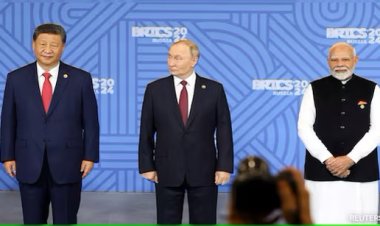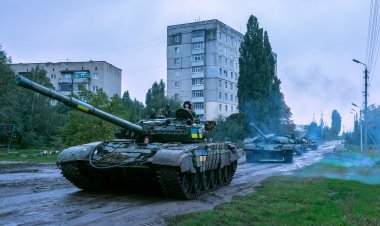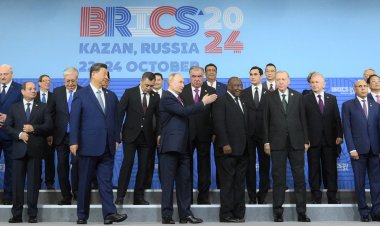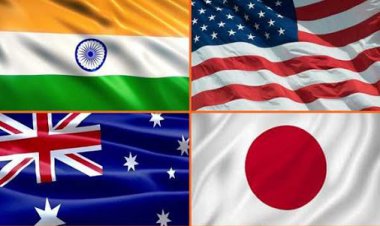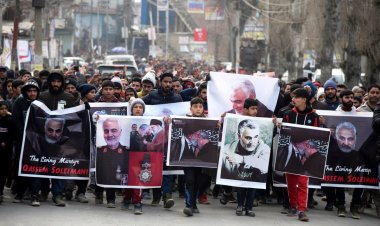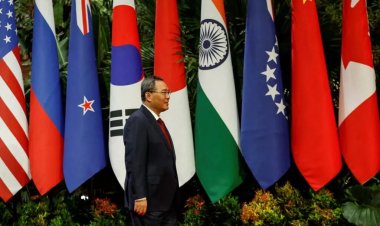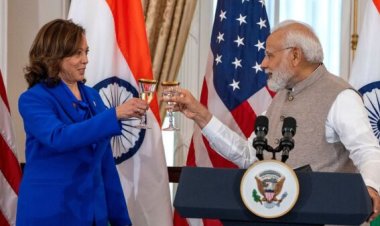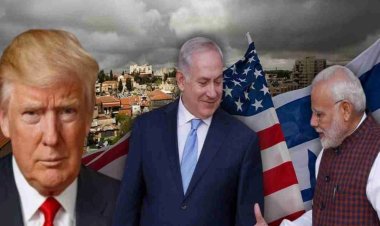India Meets Greece: Revitalizing the Ancient Civilizational Ties
As the PM Modi embarks on his first visit to Greece, the first such Prime Ministerial visit in the past 40 years. This paper discusses the ancient linkages of historical and civilizational ties between India and Greece and how it is an opportune time to not only celebrate but also harness and strategize the untapped latent potential between both countries.
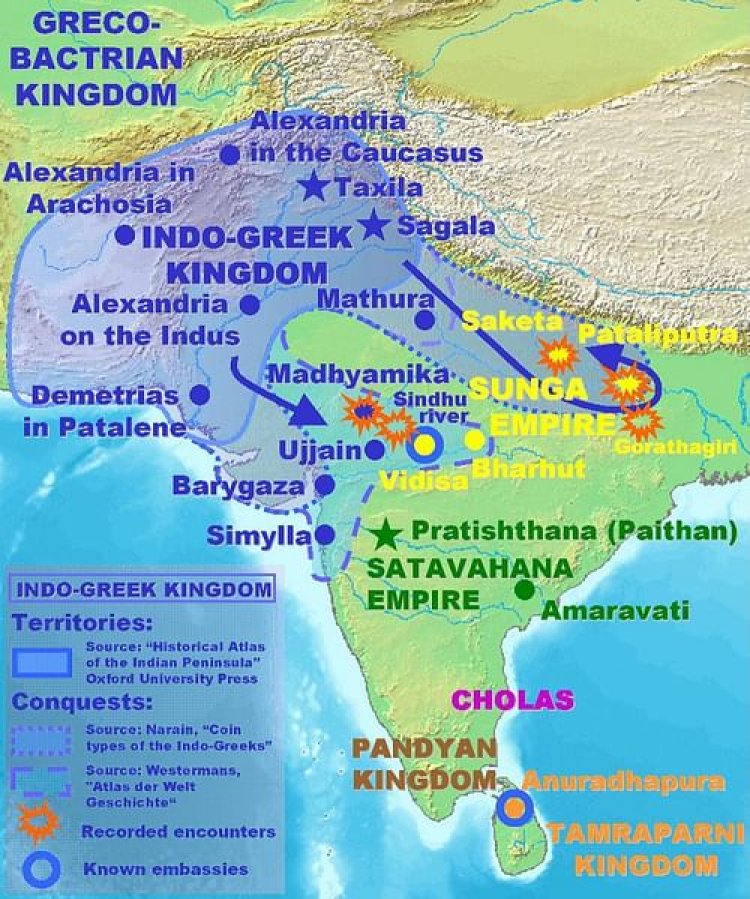
Commentary
By Shivani Pandey and Abhinav Pandya
As Prime Minister Narendra Modi embarks on his first visit to Greece next week, the first such Prime Ministerial visit in the past 40 years, it serves as an opportune time to not only celebrate but also harness and strategize the untapped latent potential veiled in the centuries of historical and civilizational ties the two countries have shared. Interestingly, earlier this year, Greece’s Ambassador His Excellency Dimitrios Ioannou was a keynote speaker at the Usanas Foundation’s Flagship event ‘Maharana Pratap Annual Geopolitics Dialogue’ during which he discussed the need to revitalise relations and bolster cooperation between the two nations given the rich historical and cultural connect they share.
The past connects
The strong foundational ties between India and Greece trace their origin back to the 6th Century BC when Greek merchants first arrived at the Coromandel Coast of India for trade. As trade flourished, there were frequent contacts and synergies between the Greek and Indian emperors. While the outcome and effects of Alexander’s invasion into India in 326 BCE continue to be surrounded by vagueness and speculations, the happening certainly generated diverse cultural, scientific, and economic exchanges between the two civilizations.
Political: After 19 months in India, while Alexander returned, many of his soldiers and generals stayed back in the North-west region of India where they established their colonies and small kingdoms, amalgamated into Indian cultures and were called Bactrian Greeks. Seleucus Nicator, commander-in-chief of Alexander’s army, founded the Seleucid Empire in India but later ceded parts of his empire after his conflict with the mighty Chandragupta Maurya. The period also saw the first Indo-Greek political marriage between Chandragupta and Helena, the princess daughter of Seleucus. Maurya empire also hosted Greek Ambassadors such as Megasthenes, Deimachus, and Dionysius. Later, Demetrius’ invasion of India in around 180 BC led to the establishment of an Indo-Greek kingdom encompassing southern Afghanistan and parts of Punjab.
Art, Architecture and Language: Both countries have shared a rich heritage of knowledge, wisdom, and mystics. The Greeks introduced features of Hellenistic art in the North-west Frontiers of India and influenced the style of Indian architecture, evidenced in the sculptures of the Gandhara School and Mathura School of Art. The influence is seen in the Graeco-Roman style of Buddha statues and stupas found in the regions adjoining the Indo-Greek Bactrian empire. The shared culture is also exhibited in the similarity in languages spoken and scripts employed in the two civilizations. The murals paintings such as in Ajanta also showcase Greek influence. This is again demonstrated in the Ashoka inscriptions using Greek scripts. There was paralleled scientific progress and exchange of ideas in the field of Astronomy and Astrology. Many Greek works were translated into Sanskrit by Indian scholars viz. Yavanajataka translated by Yavanesvara into Sanskrit. Kushanas coins and inscriptions also made use of Greek alphabets and legends viz. Rabatak inscription which describes the rule of Kanishka, employs Greek script. Greek influence can also be witnessed in the Indian drama traditions. Sanskrit word for the curtains used in theatre is Yavanika which apparently comes from the word Yavan i.e., Greece. Interestingly the word Yavan comes from Ionia. It can be argued that the use of curtains was a Greek practice which was adopted by the Indians.
Religion and Philosophy: India and Greece also shared a religious and philosophical connection. The philosophy of Pyrrho who accompanied Alexander to India, shows marked convergence with the beliefs and tenets of Buddhism. The strong diplomatic and religious ties were exhibited even during Ashoka who sent emissaries to the Greek empire. Under the Indo-Greek patronage, Buddhism flourished and was propagated across conjoining regions. Menander I, the Greek King of India, was one of the patrons of Buddhism and the subject of the celebrated work Milindapanho. The two civilizations also share a historical tradition of democracy, with the city-state of Athens being the first democratic political entity and parallelly some Indian village republics also exuding a certain semblance of democratic tradition.
Economic and Trade: Greek traders exported to India goods such as glassware, oil, pigments, and metals while importing commodities like wines, corals, pearls, sandalwood, semiprecious stones, textiles, and spices. The hordes of centuries-old coins from the Roman and Greek empire found in the southern part of India points out the flourishing trade between India and Yavanas (Greeks).
The present necessitates
The close ancient cooperation between the two civilizational powers was subsequently stagnated and eroded due to disruptions unleashed by the colonial invasions in both countries. While India and Greece, shedding the colonial legacy, established diplomatic cooperation in 1950, the alliance is still afflicted with a lack of zeal, vigour, and a comprehensive blueprint to harness the severely untapped and unutilized strategic potential.
The strategic geographical location of Greece as a ‘Gateway to Europe’ can immensely aid India and Europe’s foreign policy objectives and vision for future global politics, especially in the contemporary volatile geopolitical environment where Europe is brewing measures to decouple and alleviate its dependence on an increasingly aggressive China.
With the Russia-Ukraine conflict inducing mayhem and tensions in European politics, India’s engagement with the countries in the region can project and solidify it as a reliable and stabilizing partner. Greece being a member of the North Atlantic Treaty Organisation (NATO) as well as the European Union (EU) is the key and ideal ally for India to augment its footprint in the region. Thus, an increased cooperation with Greece can serve as a strong foundational stone for India’s outreach to so far neglected and unheeded Eastern Europe and beyond.
The future calls
The strong foundational connection that the two countries share and the present challenges the uncertain world order poses serve as a fertile ground to forge a thriving and instrumental collaboration between the two ancient civilizational allies. Over decades and centuries, India and Greece have continued to demonstrate a tradition of mutual respect, trust, and solidarity, for instance, India has maintained a consistent position on Cyprus and Greece has supported India’s bid to seat in United Nations Security Council (UNSC). As the Greek envoy to India, Ambassador Dimitrios Ioannou observed, the two countries are “natural allies,” and it is now a favourable juncture to bolster the strategic, military, and security dimensions of the relation while we continue to invigorate close partnership in the economy, people-to-people cultural exchange and development. As great power rivalry and a new cold war ferment tend to define the emerging world order, a “Middle Power” solidarity grounded in an enduring India-Greece alliance can be the stabilizing and steadying factor in an uncertain future world order.
Disclaimer: This paper is the author's individual scholastic contribution and does not necessarily reflect the organization's viewpoint.


